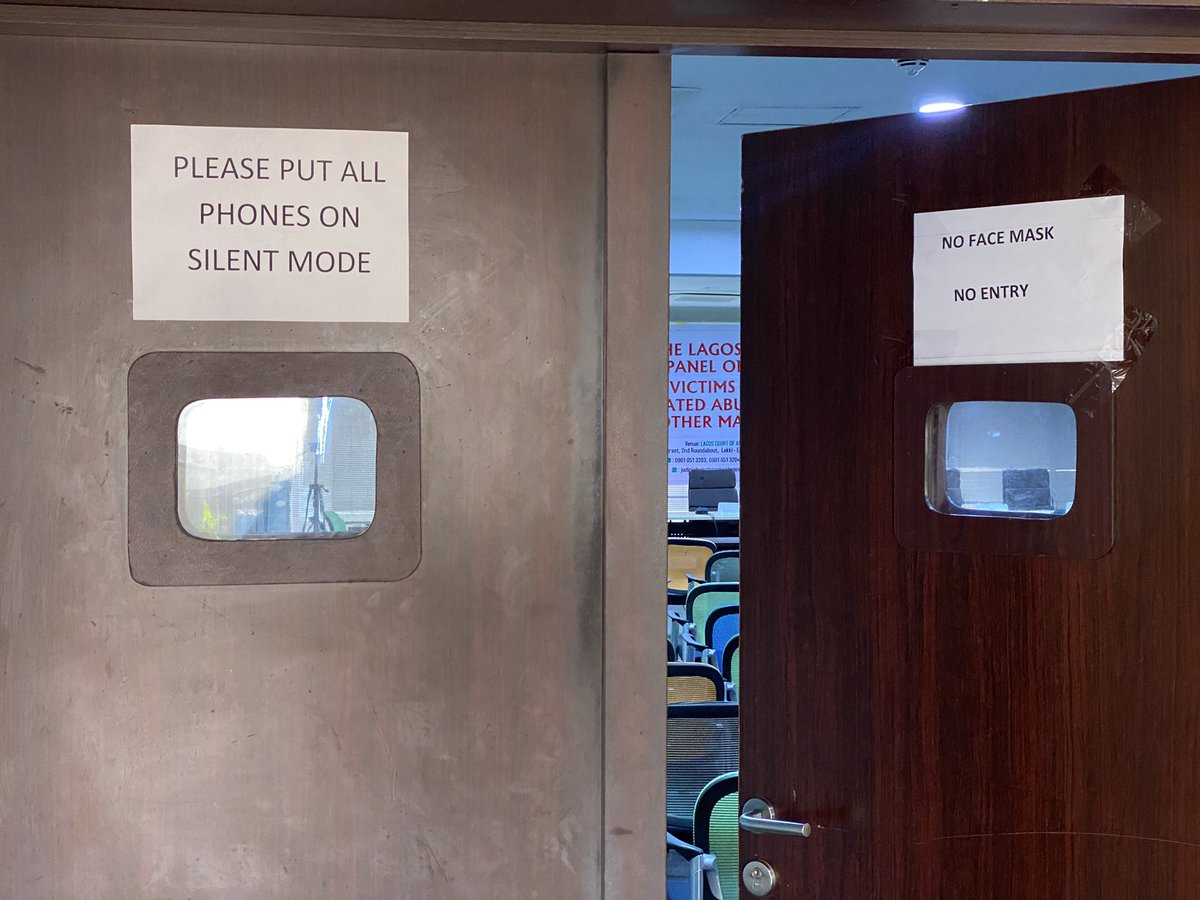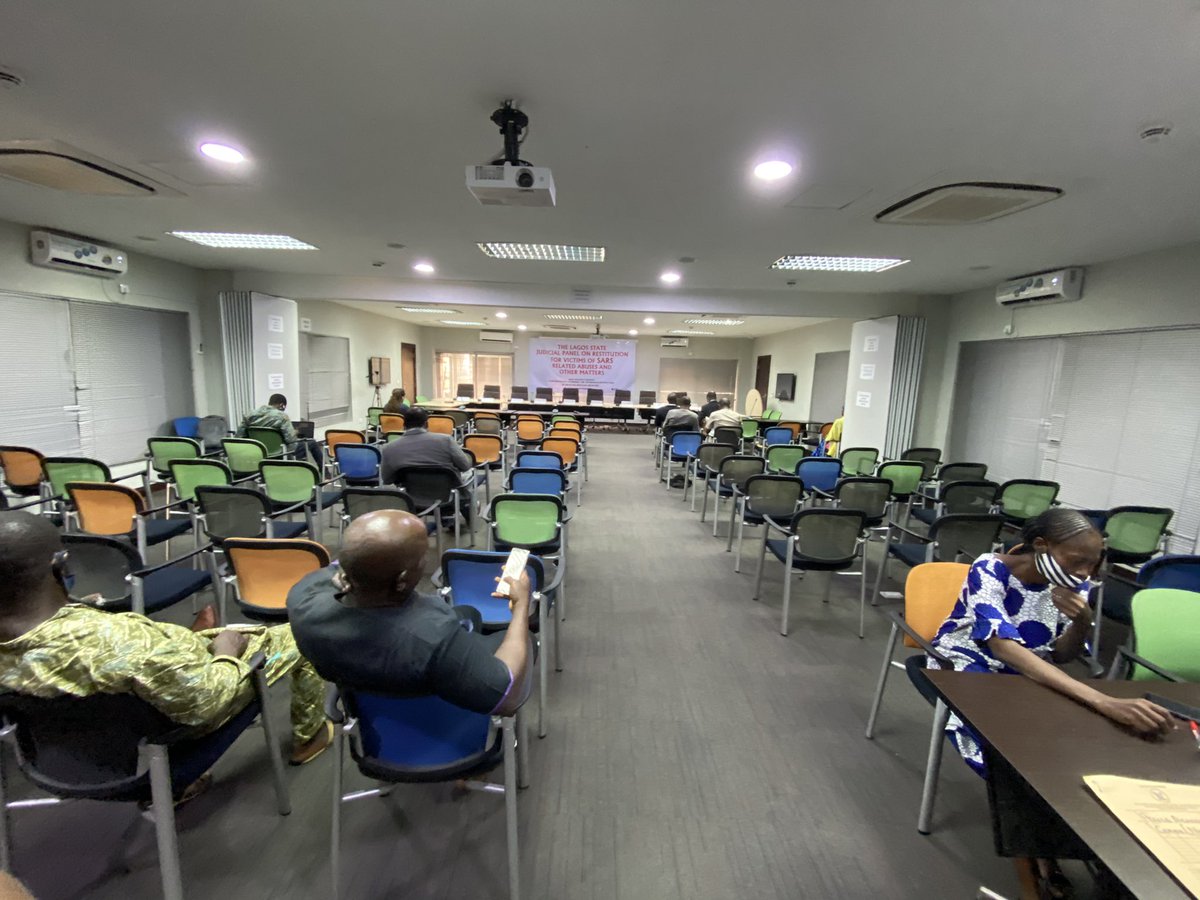Well, first of all, “Turn off your phones” signs are gone, replaced by friendlier ones.
“No phones beyond this point” sign also gone. I even got a special seat reserved, so I can be mischievous in peace.


09:57 At the Lagos State #EndSARS Judicial Panel of Enquiry.
— Editi Effi\xf2ng (@EditiEffiong) December 1, 2020
Empty gallery so far. Looks like folks haven\u2019t woken up yet. The judiciary staff who handle the petitions have just arrived. https://t.co/gl2tMOpJZa pic.twitter.com/Kt1Ky1pktU


Trump's "lawyers" won't offer any sort of defense.
— DCPetterson (@dcpetterson) February 12, 2021
They will distract, deflect, distort and dissemble.
They'll engage in whataboutism and name-calling.
They'll call the trial "unconstitutional," even though the Senate decided it wasn't.
They won't engage with the facts.